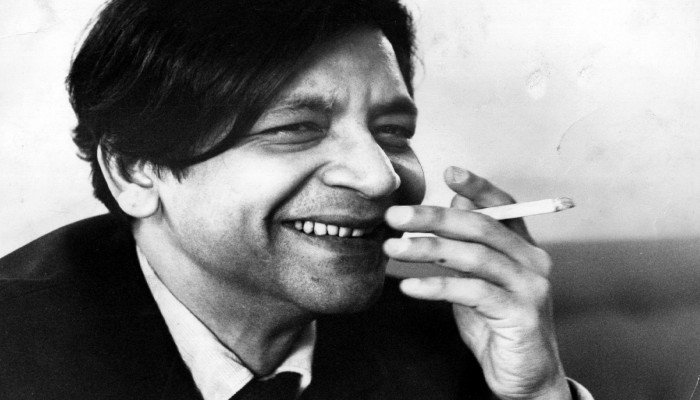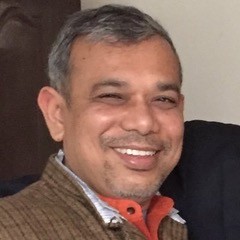Remembering Vidia
- In Current Affairs
- 08:22 PM, Aug 12, 2018
- Avatans Kumar
Sir Vidiadhar Surajprasad Naipaul was born on August 17, 1932. Affectionately known as ‘Vidia’, Naipaul’s grandfather was an indentured laborer from India. He was brought to Trinidad by the British farm owners to work on sugar plantation. The system of an indentured laborer, in those days, was a way to circumvent the newly enacted anti-slavery law. From toiling on the sugar plantation as a slave to being knighted (1990) by the same colonial masters, this journey of two generations is a remarkable one.
Vidia grew up in Chaguanas, Central Trinidad. His parents never abandoned their ancestry and it became an integral part of his life journey. His family raised Vidia as a Hindu. He grew up in a house built by his grandfather who “ignored every colonial style he might have found in Trinidad and put up a heavy, flat-roofed oddity”. Vidia was a good student. He won a full scholarship to enroll in a Commonwealth university of his choosing and ended up in Oxford in 1950.
Later on, he settled in London and started writing. However, it was ‘A House of Mr. Biswas’ that delivered him on the world scene. Later on, he would go on to write several masterpieces such as ‘An Area of Darkness’, ‘The Mimic Men’, ‘In a Free State’ (Booker, 1971), ‘The Loss of Eldorado’, ‘Guerillas’, ‘A bend in the River’, ‘India: A Wounded Civilization’, and ‘Million Mutinies’. Naipaul was awarded the Nobel prize for literature in 2001.
Vidia, like many immigrants, was conflicted about his identity that led him to dig deeper into this question. In the New Statesman (1965) he writes, “Then there is the West Indian with his search for identity. Here is a phrase that has gone deep. Students, already – how disquieting! – preparing theses, write or even telephone to say that they get the impression from my books that I am engaged in a search for identity. How is it going? At times like this I am glad to be only a name.” Most of his writings are somehow an attempt to discover and establish a sense of identity. Grappling with this sense of identity, he would observe, “Living in a borrowed culture, the West Indian, more than most, needs writers to tell him who he is and where he stands” (The Middle Passage).
Vidia spent a year in India visiting the very village in Uttar Pradesh from where his family came. He made several trips back to India. According to reports, he even considered applying for Overseas Citizens of India (OCI) status. To him, India seemed to be an idea rather than a physical, geographical entity. This idea of India for him was both liberating and subjugating as the same time. “I grew up with two ideas of India”, he writes in India: A Million Mutinies. “The first idea – not one I wanted to go into too closely – was about the kind of country from which my ancestors had come … There was a second India. It balanced the first … It was also the India of the great civilization and great classical past. It was India by which, in all the difficulties of our circumstances, we felt supported.”
Though Vidia was raised as Hindu by his parents, he claimed to have left Hinduism behind in childhood. He seemed to be set on the path of rediscovery in ‘India: A Wounded Civilization’. He seems to acknowledge that India, and Hinduism has been described by ‘outsiders’. During the colonial period, as the West became familiar with religions of the Americas, Africa, and Asia, the “main mode of transmission about these religions became from outsider to outsider …” (Arvind Sharma, Dharma and the Academy, A Hindu Academic’s View, American Journal of Indic Studies, Vol 1, Num 1). Naipaul, in his India: A Wounded Civilization would argue that the Western attempt to enter ‘Hindu Equilibrium’ may be possible for scholars, at the level of ‘intellectual comprehension’. However, this understanding is not reconciled at the level of reality. “The hippies of Western Europe and the United States”, he would write, “give the illusion of having done so; but they break just at the point where the Hindu begins …”.
Vidia, in his quest, belonged to the thousands of years old Hindu tradition of ‘self-realization’. It is not just a quest for ‘identity’, but it is much deeper than that. Vidia’s journey just came to an end, just a few days short of his 86th birthday. I hope he found what he was looking for in his life.
Om Shanti! Peace!







Comments